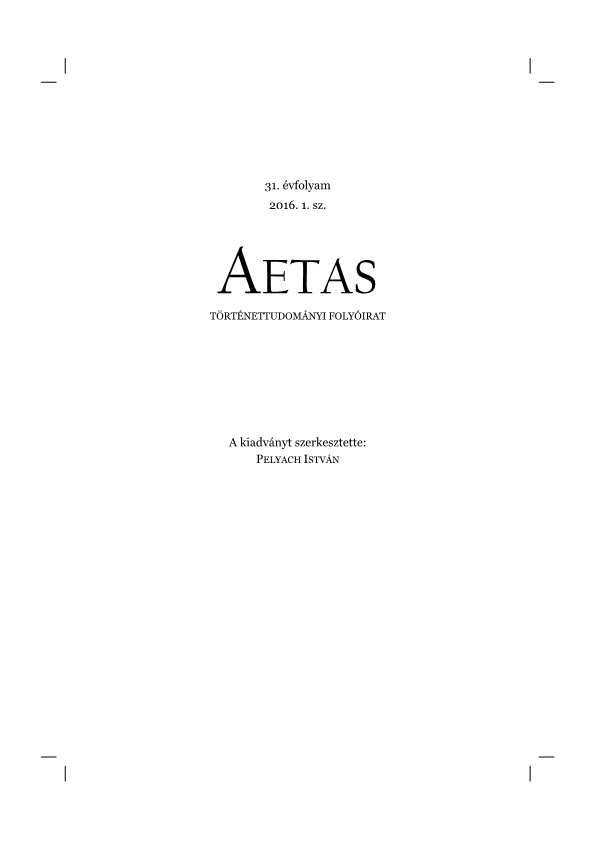Vezérszerep helyett bitófa. Zichy Ödön gróf politikai metamorfózisa
The gallows tree instead of a leading role: the political metamorphosis of Count Ödön Zichy
Author(s): Tamás MelkovicsSubject(s): 19th Century
Published by: AETAS Könyv- és Lapkiadó Egyesület
Summary/Abstract: On 29 September 1848, Count Ödön Zichy was arrested by the Hunyadi irregular soldiers in the outskirts of Soponya. As they found a safe-conduct issued by Jellachich and some manifestos on him, Artúr Görgei had him brought to trial before the military tribunal and, on the basis of his sentence for high treason, had him hanged on 30 September at Lórév on Csepel island. The first half of the paper makes an attempt to answer the question: was the secret police wrong in 1840 to proclaim Ödön Zichy one of the leaders of the magnates’ opposition? Or did his activity in parliament justify this claim? Following his political career up to this point, the paper declares that it was not a misinterpretation. Ödön Zichy became one of the most prominent figures of the noble opposition that developed into an organized group during the 1839–1840 parliamentary session. There is no doubt about his powerful oppositionist stance and anti-absolutism. He had most probably accepted and internalized the thought of civil reforms and moderate liberalism, though he could only imagine this, in contrast to the democratic ideas, with the leadership of the aristocracy. The second half of the paper examines the reasons that led Ödön Zichy, who was appointed főispán (governor) and administrator in 1845, to take a completely different political course. It will be argued that the cornerstone of his political metamorphosis was the rise of Lajos Kossuth and the consequent failure of aristocratic reforms. After the debate launched by Pesti Hírlap everybody had to take sides, and Zichy chose to step back. In Fejér county, the Madarász brothers, who slightly went beyond liberalism and were also open to democracy, provided a grounding for justifying the necessity of self-confidently and resolutely countering radicals. Then came the scandalous general assembly on 3 May 1843, followed by mutual accusations between Ödön Zichy and László Madarász, from which point there was no way back. Zichy became more and more estranged from his previous views and ideals. Previously, his political attitude could be characterized by such terms as radical oppositionist, aristocratic, moderate liberal. Of these, only aristocratic remained, and even that turned into aristocratic, pro-government conservatism. Ödön Zichy’s career and the history of the metamorphosis, metamorphoses of his political views not only provides us with an exciting personality portrait but may also serve as an addition to the understanding of the restructuring of politics at the beginning of the 1840s.
Journal: AETAS - Történettudományi folyóirat
- Issue Year: 2016
- Issue No: 1
- Page Range: 132-153
- Page Count: 22
- Language: Hungarian

